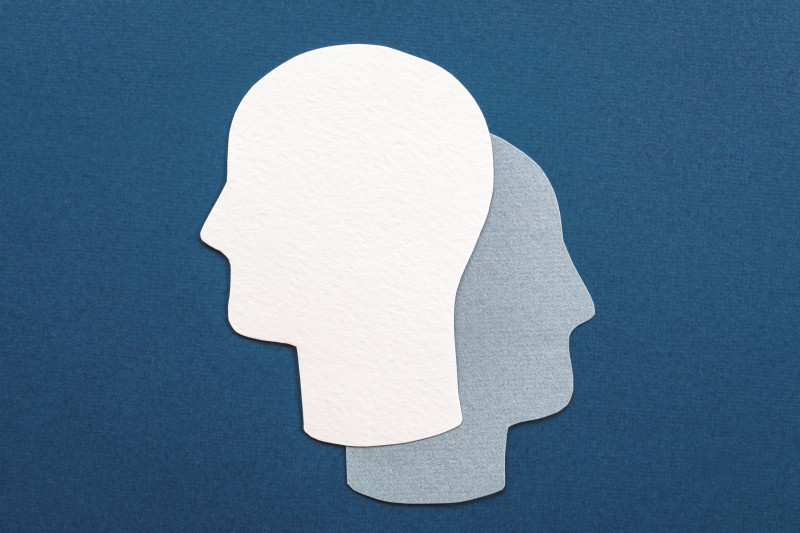15 August 2024 | Health and social care
Men's Mental Health: Breaking the Silence and Embracing Change

Men's mental health has long been a topic shrouded in stigma and silence. For years, societal norms have perpetuated the idea that men should be stoic, strong, and unemotional, leading many to bottle up their feelings rather than seek help. However, recent shifts in attitudes, increasing awareness, and growing support systems are encouraging more men to prioritise their mental well-being.
Statistical data reveals alarming trends in men's mental health. According to the Mental Health Foundation, men are less likely to access psychological therapies compared to women, with only 36% of referrals to the NHS for therapy being male. Moreover, men are three times more likely to die by suicide than women. This stark contrast highlights the urgent need to address the unique challenges faced by men when it comes to mental health.
The reluctance of men to seek help can be attributed to deep-rooted cultural expectations. From a young age, many men are conditioned to equate vulnerability with weakness, making it difficult for them to acknowledge when they are struggling. This has resulted in a significant number of men suffering in silence, often leading to severe consequences.
Despite these challenges, there has been a notable shift in how men perceive mental health. A survey conducted by the British Association for Counselling and Psychotherapy (BACP) indicates that more men are now open to discussing their mental health and seeking therapy than ever before. This change is largely driven by increased awareness campaigns and a broader cultural acceptance of mental health issues.
Men's willingness to engage in therapy is also influenced by how therapy is presented. Traditional therapeutic settings may not appeal to all men, but more diverse approaches—such as online counselling, group therapy, and peer support—are gaining traction. These alternatives provide men with the flexibility and comfort they need to take that crucial first step towards better mental health.
While progress is being made, several barriers continue to hinder men's access to mental health support. One of the significant issues is the lack of tailored mental health services that specifically address men's needs. Many existing services are designed with a one-size-fits-all approach, which may not resonate with men who have unique psychological and emotional experiences.
Additionally, societal pressures remain a significant obstacle. Men often face criticism or mockery for expressing vulnerability, which can deter them from seeking help. This is further exacerbated by the media's portrayal of masculinity, which often glorifies resilience and toughness while marginalising emotional expression.
Addressing these challenges requires a multifaceted approach. First, there must be continued efforts to deconstruct harmful stereotypes associated with masculinity. Educational programs, media campaigns, and public discussions can help redefine what it means to be a man in today's society—emphasising that seeking help is a sign of strength, not weakness.
Healthcare providers should also focus on creating more inclusive and accessible mental health services. This includes training professionals to understand and address the specific mental health needs of men, as well as expanding the availability of alternative therapeutic options. Peer support groups, where men can share their experiences in a judgement-free environment, can be particularly effective.
Furthermore, employers have a crucial role to play. Workplaces can foster a culture of openness by providing mental health resources, promoting work-life balance, and encouraging employees to take care of their mental well-being. This not only supports individual employees but also contributes to a more productive and healthy work environment.
Conclusion
Men's mental health is a complex and critical issue that requires ongoing attention and action. While there have been positive changes in attitudes towards mental health and therapy, there is still much work to be done to ensure that men feel comfortable and supported in seeking help. By continuing to challenge outdated notions of masculinity, expanding access to tailored mental health services, and fostering supportive environments, we can create a society where men's mental health is prioritised and protected.
To learn more on this topic, join us for The Second National Advancing Men’s Mental Health in the Workplace Conference 2024, an exciting, educational, and practice-enhancing event that will explore the factors damaging male mental health, how best to support men in the workplace, create resilience, and activity address men’s mental wellbeing.
Events

The Future of UK Immigration 2026
26 February 2026

The National Operating Theatres Show 2026
10 March 2026

The Annual Facilities Management in the Public Sector Show 2026
17 March 2026

The Future of Academies Show and Exhibition 2026
25 March 2026

The Annual Special Educational Needs and Disabilities (SEND) Conference 2026
25 March 2026
Courses

Leaders in Construction Programme - CMI Level 7
24 February 2026
6 spaces available

AI for Leaders
24 February 2026
7 spaces available

Women In Leadership
6 March 2026
-4 spaces available

Construction Leadership and Management Development Programme - CMI Level 5
10 March 2026
4 spaces available

Effective Leadership Through Emotional Intelligence - CMI Level 7 Award
17 March 2026
5 spaces available